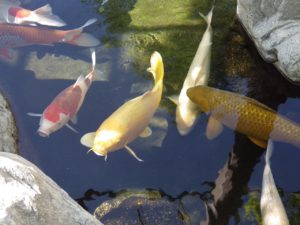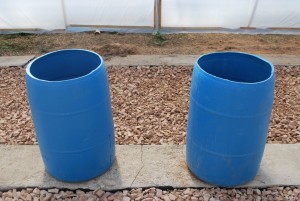If you want to design and build an aquaponic system at home but don’t have much experience, we have a few great tips for you. If you are an absolute beginner, this is a great place to start!
Fish is a wonderful creature that has many uses. And you know what the best part is? You can easily raise fish in your backyard.
Do you already have a backyard garden? If you answered yes, all you’ll need now is to design a backyard fish farm, and start raising fish. You can start with a simple design that doesn’t require many inputs, and gradually expand it as you get more comfortable with it.
You can start a fish farm at any scale; it can be for your own personal consumption, or you can raise fish commercially for profit.
What you need to know before you start your first backyard fish farm
 Before you start your backyard fish farm it’s a good idea to learn as much about fish farming as possible to make it sustainable. You will have to design a pond, build or purchase a tank and have a filtration and aeration system in place.
Before you start your backyard fish farm it’s a good idea to learn as much about fish farming as possible to make it sustainable. You will have to design a pond, build or purchase a tank and have a filtration and aeration system in place.
A sustainable aquaculture system is a closed loop system that uses the waste from the fish tank to feed the plants. So, it produces more crops with less waste and fewer inputs.
A Simple Backyard Aquaponic System:
Aquaponic systems are combination of aquaculture and hydroponics. It allows you to raise fish and grow plants at the same time: no soil required! Because you are producing two types of crops at the same time, you are producing more food using fewer resources, in less time.
Beginner’s Tip: If this is your very first aquaponic adventure, start small. You’ll find even a lot of professional aquaponic growers started too big their first time before they fully understood their system of choice.
Basic Components:
Here are some of the basic components you’ll need to design an aquaponic fish farm. There are many ways to combine and customize your system to suit your needs, so we’re going to cover a couple. It would depend on your climate, your fish and the goals and purpose of your fish farm. For example, if you live in a cooler zone, you might need a greenhouse or water heater for your aquaponic system to function properly all year round.
1. Tank
 It’s important to plan out your system and estimate the size of your tank before starting. Again, it would depend on the species of fish you are planning to raise. In theory, one gallon water is needed for a pound of fish. However, it’s better to plan for extra room ahead of time so that when your fish start to grow, your system doesn’t fall out of balance.
It’s important to plan out your system and estimate the size of your tank before starting. Again, it would depend on the species of fish you are planning to raise. In theory, one gallon water is needed for a pound of fish. However, it’s better to plan for extra room ahead of time so that when your fish start to grow, your system doesn’t fall out of balance.
2. Grow Beds
Your plants will need some sort of container to grow, which one do you want? Want to make your own? There are many DIY approaches for growing plants in a soilless system. For example, you could use wooden boxes and line them with pond liner to make them waterproof. You could then fill up each container with fine gravel so that it can feed your plants with water from your fish tank. There are also ways to design a system with PVC pipes and Dixie cups!
3. Pumps and Hardware:
The magic of an aquaponic system is that you can grow plants and raise fish at the same time with fewer inputs. You will need to circulate the water from your fish tank with a pump to feed your fish. Your plants will filter out the waste and add nutrients to your system, so ideally; you don’t need to add many nutrients to your water for plants or fish after your initial inputs. Therefore, you’ll need a pump to circulate your water and some plumbing and hardware to design your self-sustaining aquaponic system.
Conclusion:
Have you ever been interested in aquaponics? Now’s the time to start planning! With these tools you’ll be able to begin your first very own aquaponics fish farm!
An aquaponic fish farm can be a self-sufficient sustainable method of raising fish and growing vegetables at the same time with minimum waste and inputs. It saves time, energy, and money leading the way in environmentally sustainable agriculture.
P.S: Setting up an aquaponic system in your backyard with plumbing and pumps can be a little tricky. Read our blogs regularly for more information. To learn more about it Join our weekly Ecolonomic Action Team (EAT) live webinars. Also, join our aquaculture central portal for tons of information for FREE! (It won’t stay free for long)
Source: WorldWide Aquaculture




Something I really like about aquaponics is that it’s much easier to be able to get the younger generation excited about it.
At least, this has been my own personal experience.
Nothing feels more fulfilling than growing your own plants and fish at the comfort of your home. Am a big fun of DIY projects and I must say that aquaponics is a great project and it’s easy to setup for anyone.
Thank you for this great guide!!